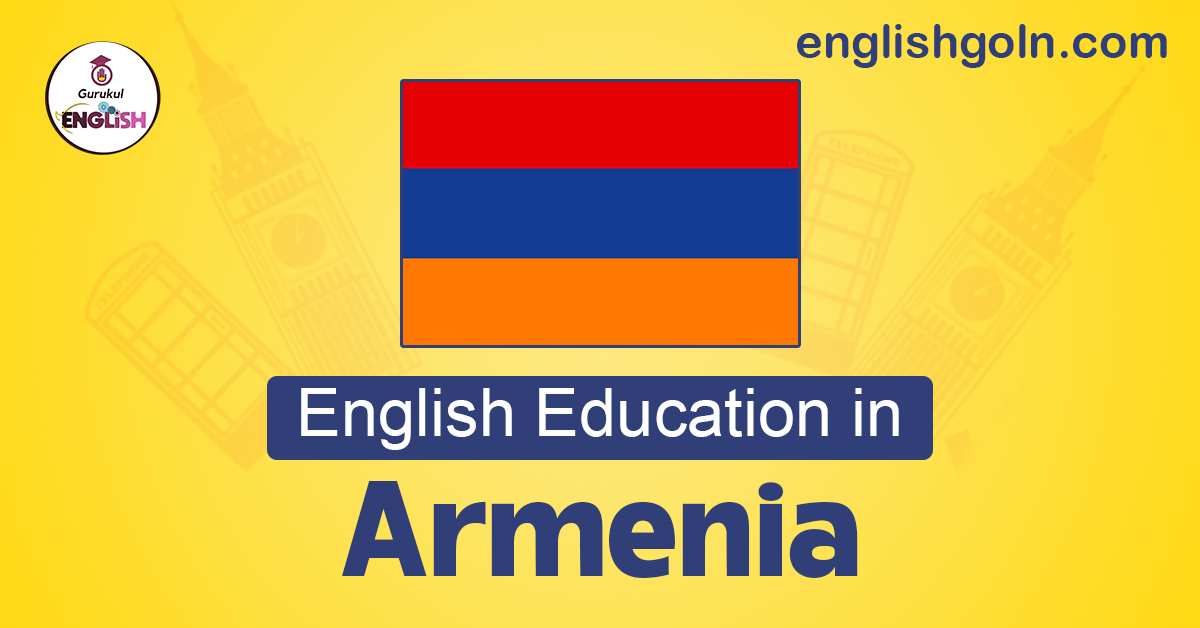Armenia, a landlocked country in the South Caucasus region, has a rich history and cultural heritage dating back thousands of years. With a growing emphasis on global connectivity and international relations, English education has gained significant importance in Armenia. This article explores the state of English education in Armenia, its historical context, current challenges, and the impact it has on the nation’s youth and its aspirations for a brighter future.
English Education in Armenia

Historical Context of English Education in Armenia
The roots of English education in Armenia can be traced back to the early 20th century during the Russian Empire’s rule. During this period, English was introduced as a foreign language in Armenian schools, primarily as a means to enhance communication and relations with the English-speaking world.
However, it was during the Soviet era that English education experienced significant growth and institutionalization. The Soviet Union recognized the importance of English as a global language, and English classes became more widespread in schools and universities across Armenia. English became a prominent language for scientific and technical publications, allowing Armenians to access international research and knowledge.
Following the collapse of the Soviet Union in 1991, Armenia experienced a transition to a market-oriented economy and open borders, resulting in increased interactions with the global community. This shift further emphasized the need for English language proficiency in trade, diplomacy, tourism, and education.
Current State of English Education in Armenia
Today, English education is an integral part of the Armenian education system. English is taught as a foreign language from an early age, and its importance is underscored by its inclusion in the national curriculum. English language classes are offered in both public and private schools, with a focus on developing reading, writing, speaking, and listening skills.
Armenia’s higher education institutions also emphasize English language proficiency. Many universities offer English-taught degree programs, attracting international students and fostering a multicultural learning environment.
The growing interest in English language education has led to the establishment of language centers and private institutes dedicated to teaching English to students of all ages. These centers often use modern teaching methodologies and digital resources to enhance language learning.
Challenges in English Education
Despite the progress made in English education, several challenges persist:
- Teacher Training: English teachers’ professional development and training play a crucial role in ensuring the effectiveness of language education. However, limited access to quality teacher training programs and resources remains a challenge.
- Language Proficiency: Ensuring a high level of English language proficiency among teachers is vital for imparting quality education. There is a need to attract and retain proficient English teachers in schools and universities.
- Access to Resources: Access to English language learning resources, such as books, audio-visual materials, and online platforms, can be limited, particularly in rural areas.
- Language Policy: The implementation of an effective language policy is essential to strike a balance between promoting English language skills and preserving the Armenian language and culture.
- Socioeconomic Disparities: Socioeconomic disparities in Armenia can impact access to quality English education, as students from low-income families may have limited resources for language learning.
The Role of English in Armenia’s Global Aspirations
The emphasis on English education in Armenia reflects the nation’s desire to strengthen its global connections and participate actively in the international arena. Proficiency in English is seen as a gateway to educational, economic, and career opportunities, both within the country and beyond its borders.
Educational Opportunities: English proficiency opens doors to scholarships and study abroad programs, allowing Armenian students to pursue higher education in prestigious institutions worldwide.
Economic Growth: English fluency enhances Armenia’s competitiveness in the global job market. It increases employability and allows access to international business opportunities and partnerships.
Cultural Exchange: English proficiency fosters cultural exchange and mutual understanding between Armenia and the rest of the world. It enables Armenians to share their rich history and traditions with a global audience and learn about other cultures.
Diplomacy and International Relations: English is the lingua franca of diplomacy and international relations. Being proficient in English enables Armenian diplomats and policymakers to engage effectively with the global community.
Conclusion
English education in Armenia has come a long way from its early beginnings, now occupying a significant place in the nation’s education system. The Armenian government, along with educational institutions and language centers, must continue to invest in teacher training, language resources, and technology to enhance English language proficiency among students.
Beyond linguistic proficiency, English education in Armenia embodies the nation’s aspiration for global connectivity, cultural exchange, and international collaboration. A generation of Armenians equipped with English language skills can contribute significantly to Armenia’s economic growth, international standing, and pursuit of a brighter, more interconnected future. With a firm foundation in English education, Armenia can confidently engage with the world and share its unique identity and contributions on the global stage.
